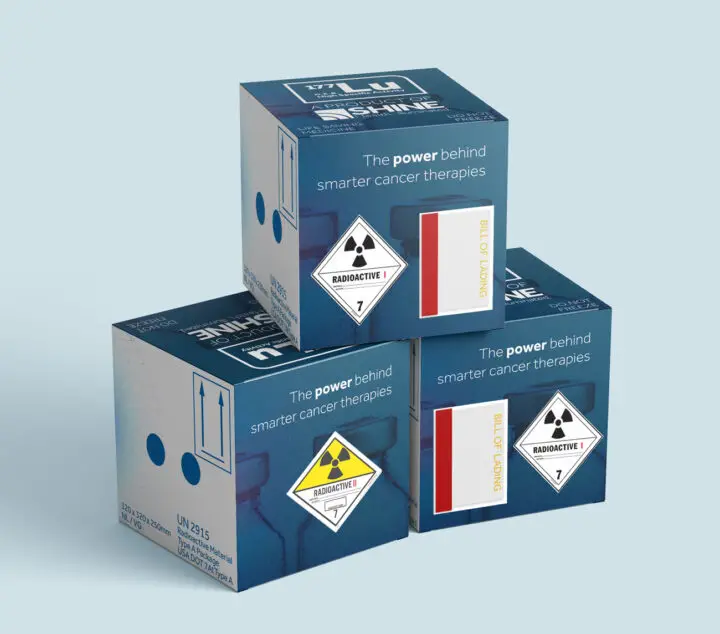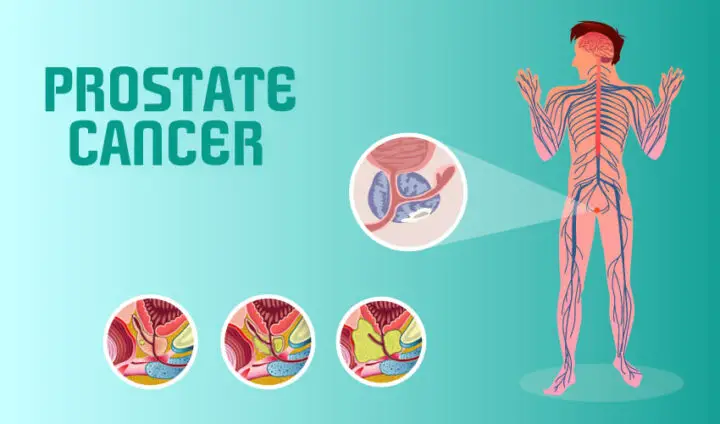Lutetium-177 PSMA Therapy for Men with advanced Prostate Cancer

An innovative treatment option for metastatic prostate cancer has recently appeared: it uses the radioactive solution that gets directly into the malignant tissue, creating a high concentration in it. Until recently, European hospitals have treated cancer with chemotherapy, which has reduced symptoms but has also negatively affected the healthy tissues. The new treatment with Lutetium-177 is different from the conventional cancer therapy, and here’s how.
What does the treatment imply?

The new method of treatment is based on the radioactive substance Lutetium-177. It is injected into the body in combination with ligands (molecules that reliably bind according to the “key and lock” model) to a prostate-specific membrane antigen. This antigen is a molecule that distinguishes prostate tumor cells and its metastases. The ligands connected to Lutetium-177 are able to fight the tumor regardless of its location.
Lutetium-177 was not chosen by chance. It is a beta-emitting radionuclide that can be obtained in its pure form. Functionally, Lutetium-177 helps to precisely localize the area of exposure in the patient’s body. When in the body, radiation destroys tumor cells precisely, so that neighboring organs aren’t harmed. With the blood flow, the Lutetium-177 spreads through the body and selectively settles only in the tissues affected by metastatic prostate cancer. And then, the process of local and targeted radiation therapy is initiated.
PSMA is a type of protein that is located on a prostate cell. In some cases of prostate cancer, the amount of PSMA receptors is higher. If patients have metastases in other parts of the body, PSMA will have significant accumulations there. The PSMA molecule basically serves as the target that allows irradiating the tumor without affecting healthy tissues.
The most amazing thing about this treatment is that it works when hormone therapy and chemotherapy are no longer effective. Studies have demonstrated a good therapeutic response in many patients with advanced forms of oncology when no other treatment methods have led to improvement.
Advantages of therapy in advanced prostate cancer

The thing is that at the advanced stages of oncology the tumor gives distant metastases. From this point on, local therapies are of secondary importance. They manage to control the primary tumor, but physicians cannot detect and destroy all metastases. In such situations, systemic methods come to the fore: those that affect all tumor cells at once, regardless of their location. It doesn’t matter whether metastatic foci are large or small; detected during the diagnostics or undetected.
By accurately identifying the affected area, physicians can treat cancer effectively without affecting healthy tissues. The innovative technology of Lutetium therapy, which is used for cancer that is metastatic or unresponsive to other therapies, allows:
- Controlling the tumor cells
- Preventing the further spread of the disease
- Reducing the size of the tumor
- Alleviating pain syndrome and other symptoms
You can find more information about the benefits of Lutetium-177 PSMA treatment here.
Undergoing Lutetium PSMA treatment during a lockdown
Currently, you can undergo treatment with Lutetium in a limited number of medical institutions abroad. So, people who want to have this treatment should be ready to travel. We all understand that since the pandemic forces many countries to go into a lockdown, traveling becomes more complicated, but not when you have somebody helping you.
Bonus 1: Symptoms of Prostate Cancer

Before we end this post, we would like to talk about the symptoms of prostate cancer. It is always better to recognize them immediately in case they appear. Unfortunately, people are not even aware of them, so we will want to highlight the most common ones here.
The first three symptoms are problems with starting the urination, weak flow of urine as well as often urination which usually appears during the night. For the last one, we need to highlight that psychological problems can sometimes be the cause. Because of that, we suggest you do not panic immediately. Some people simply have the habit (subconsciously) of going to the bathroom during the night. To resolve all the doubts, we recommend you visit a doctor and ensure that everything is fine.
However, these three symptoms are not the only ones. During urination, people may suffer some sort or burning or pain which can be a sign of prostate problem. In case you notice the blood in your urine or even semen, that should be a red flag that sends you the message “visit a doctor”.
Of course, we do not want to make people feel anxious and cause panic attacks while they read. These symptoms do not necessarily have to be the result of prostate cancer. However, if they repeat again and again, there is no reason to be afraid of visiting a doctor. The quicker you discover the health issue of this type, the treatments are going to be more effective.
Bonus 2: Causes of Prostate Cancer

To make things clear, you should know how the process of the DNA changes. More precisely, the DNA of the prostate starts to change and it sends a different message to the cells of this part of our body. That is the reason why cells start to grow and divide quicker which causes a problem of this type. The cells that die get replaced by the abnormal cell. That is the reason why cancer appears.
Generally speaking, there are multiple factors that can influence this disease. For starters, older people are the first victims of prostate cancer. That especially counts when we talk about people that are older than 50. Despite that, family history or genetics can also be one of the crucial factors. If someone from your family, such as a parent or sibling had or has prostate cancer, it may happen that you will have the same problem. However, this doesn’t necessarily mean that kids or grandparents of people that had been diagnosed with prostate cancer will have the same issue. But, the risk level is a bit higher.
Two remaining reasons are obesity and race. People that deal with obesity also have higher chances to experience a health issue of this type. Unfortunately, the studies confirmed that prostate cancer is more aggressive for people that are obese. It often happens that cancer appears again and again, but with the newest treatments, this problem may not appear. Speaking of race, studies have confirmed that black people, unfortunately, have more chances to deal with prostate cancer. There is not clear evidence of why this happens, but the statistics confirm this statement.
